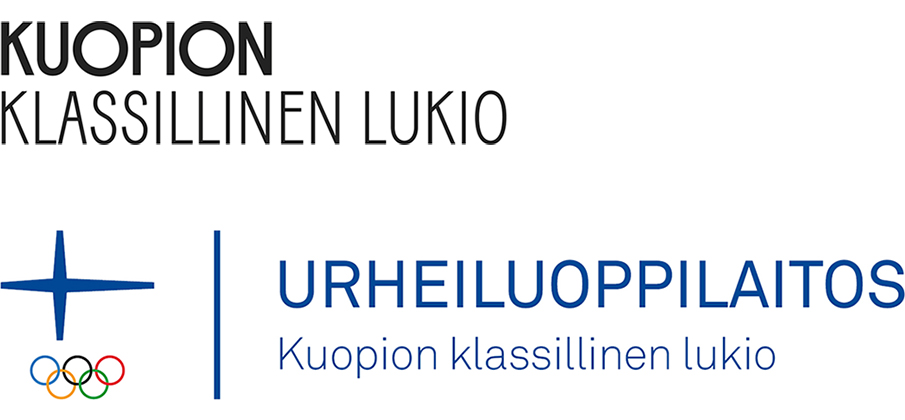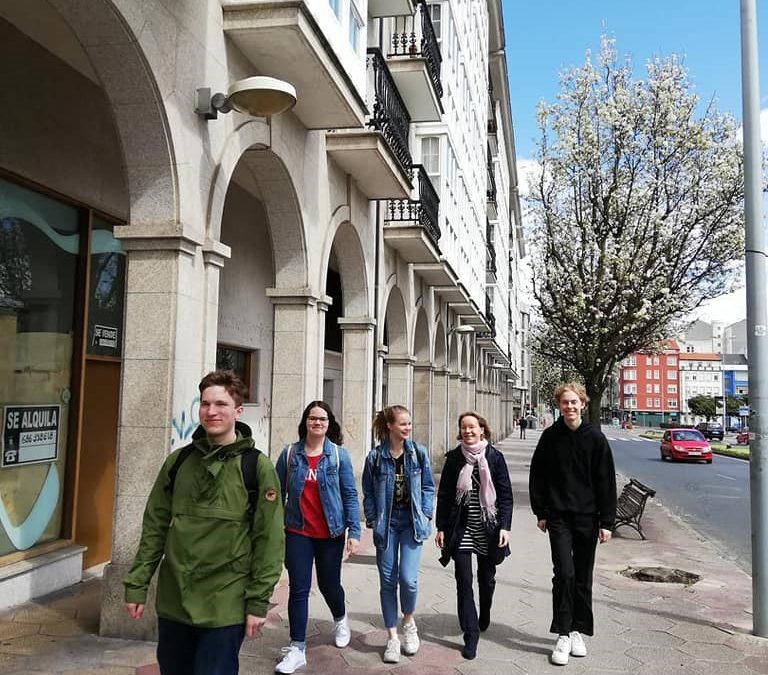Jolanda Varis reporting:
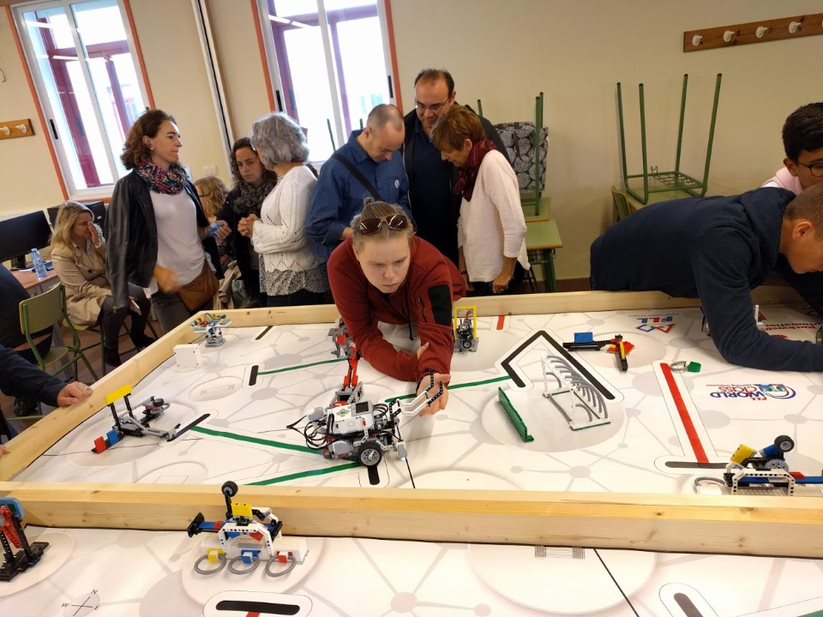 During this school year Klassikka has participated in multiple Erasmus+ projects. These projects are Robot Dance, On your Bike and C.H.A.L.L.E.N.G.E. What are these projects about? What do the participating students think of these projects? Here are all the answers you need.
During this school year Klassikka has participated in multiple Erasmus+ projects. These projects are Robot Dance, On your Bike and C.H.A.L.L.E.N.G.E. What are these projects about? What do the participating students think of these projects? Here are all the answers you need.
Robot Dance
(Hanna Sutinen)
What is Robot Dance? When was it started?
- Its idea is to familiarize students with programming and robotics without making it too hard. Working on the project started at the beginning of the school year 2018-2019 and it will continue during the next school year as well.
What is the goal of this project?
- It is supposed to offer students a way to get to know programming and robotics in a fun and approachable way. Understanding programming is an important skill in working life, and with technology developing its importance just keeps growing. By participating in this project students can begin with basics and acquaint themselves with programming in a fun way, because the tool for this project is Lego Mindstorms. The goal is that more of our graduating students have some kind of a picture of the basics of programming, and that way it’s easier to continue learning. Our goal is also to both increase our school’s international cooperation and offer our students experiences and possibilities to network internationally. The latter applies to all of our international projects, of course.
How has international cooperation been put into practise?
- We were on a week-long trip to Spain with our participating students this school year. Next November we will travel to Wales, and next April we’ll host guests from Wales and Spain for a week.
What has been achieved with the help of this project so far?
- Better knowledge of robotics. The students who started from zero know a lot about Lego Mindstorms and can program robots. More advanced students have done excellent, skilful work with the robots (which are in a classroom, free for anyone’s use). On the trip to Spain the students got unforgettable memories. We’ve seen various schools from Spain and Wales and gotten to know what their day looks like.
What do you think of this project?
- The subject of this project is important considering our students’ futures, and personally I think it’s great that our tool is Lego Mindstorms. Internationally this project includes students of all ages. Mindstorms is a great tool considering that, because it is simple enough to be used by primary school students but at the same time offers challenges for our skilful upper secondary school students. It is useful for everyone to understand the basics of programming even if they’ll never learn more advanced programming. Visiting schools abroad are always eye-opening experiences, and these opportunities don’t usually arise anywhere else but in international projects.
Students’ thoughts:
Tiia Koponen:
During this project I’ve been able to build a robot with my friends and learn some basics of coding. At least the beginning of this project has been fun, and if we’ve made any mistakes, we have just laughed them off. Even building the robot taught a lot. Personally, I’ve found it important to learn coding for the future. It has also added freedom of action to my studies, because relaxed activity during recess lets me forget maths for some time.
Ville Pitkänen:
Besides the activity we’ve gotten to do here at school, I was on the trip to Spain last autumn. The project has been fun, but in my opinion the robotics could be a little more advanced to add challenge. I haven’t really learned anything about the technology itself, but the project has been edifying. I gained three new friends from Nilsiä during the Spain trip.
Konsta Jalkanen:
I like programming and robotics, so I decided to join the project to learn more. It has been fun, relaxed and it has included a lot of optional activity, so it’s been my own decision to work on the project when I want to. I have learned a lot, and one good experience was when a long-lasting problem was solved.
Olli Litmanen:
I’ve participated in this project by building and programming a robot as well as presenting our school during a Robot Dance-related visit. I’ve liked working with the robot a lot. There are certain challenges with the programming, and it doesn’t always work as it is supposed to, but it’s nice to try and make it work after an intensive school day. I find the project great for developing future work life skills, such as programming. For me, learning people skills and getting to network with new people are valuable possibilities. Next autumn’s trip to Wales is a great opportunity to get to know new people and get some time off from school as well.
There’s a story I’d like to share as well. One day after programming the robot to move I was carelessly testing it. I got distracted from the (still moving) robot when I got a call, and I went to the hallway to talk. After I ended the call I couldn’t find the robot anywhere, but after some searching I found it under a table in the hallway.
On your Bike
(Helena Huuhka)
What is On your Bike? When was it started?
- It is an Erasmus project and it is supposed to promote biking. On your Bike was started in 2018 and it is a three-year-long project.
What is the goal of this project?
- To increase biking’s popularity as a way of travelling to school.
How has international cooperation been put into practise?
- We’ve had project trips with our participating teachers and students to Cardiff, Wales and Ferrol, Spain.
What has been achieved with the help of this project so far?
- With the help of the project trips we’ve achieved international networking. We have been able to increase the visibility of active school cycling here in Klassikka, and that way the importance of functional exercise as well as the ecological and social benefits of cycling have gained appreciation. It has been great to network with Finnish Road Safety Council (Liikenneturva) and the coordinator of our city’s cycling project as well.
What do you think of this project?
- In my opinion promoting cycling is a burning and important subject, because the ecological viewpoint of cycling is growing in addition to cycling being functional exercise.
Students’ thoughts:
Sanni Kerman:
I’ve participated in this project by visiting Spain on the project trip. The activity has been fun so far, but we haven’t done a lot besides the trip to Spain.
Aapo Piirainen:
I participated the trip to Ferrol and the activities we had there. I addition to that I’ve been planning next autumn’s visit. I find it pleasant to get to know new cultures and I found Spanish courses of action very different from Finnish. The activity in Spain was mainly targeted for primary school students, so I didn’t find it relevant for myself, but I think the kids enjoyed it. I don’t think this project has influenced me (because I mainly already cycle to school), but I’d say that many kids do benefit from this project.
C.H.A.L.L.E.N.G.E
(Sonja Lampinen)
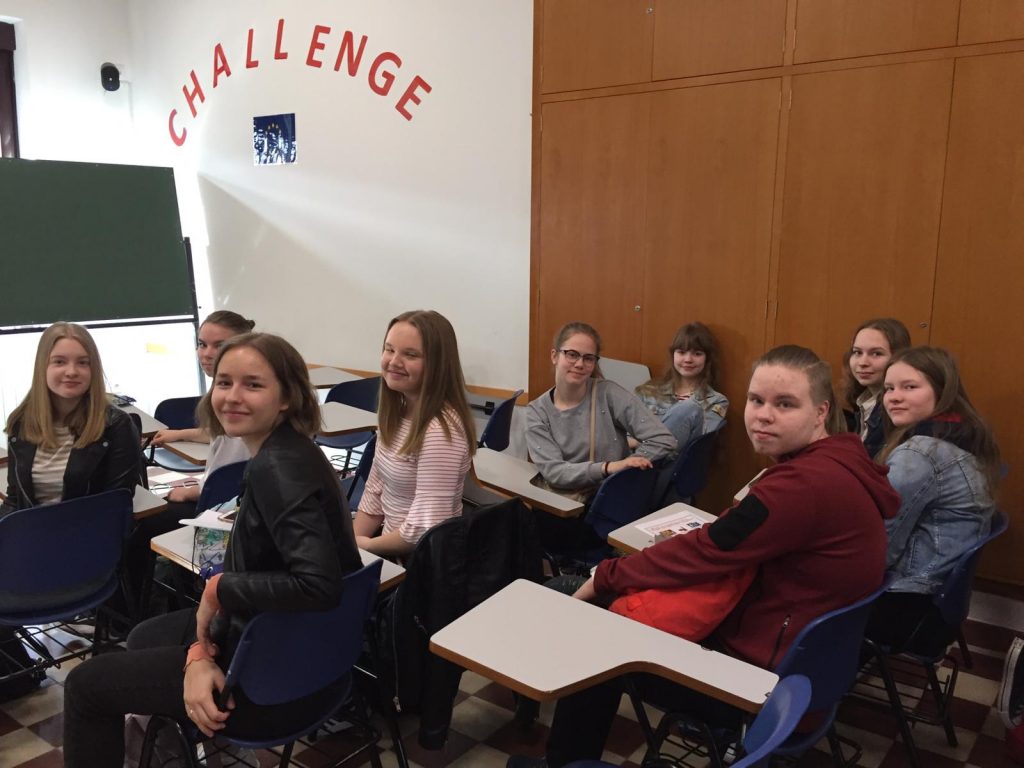
- The project C.H.A.L.L.E.N.G.E arose from a deep analysis of students’ needs in terms of their future professional life and in respect to the cultural heritage. All participating agreed on the need of internationalization of our schools in order to be able to cope with future demands. The current demands of the market and challenges that the youth face make us seek new opportunities and European solutions. All partners can see as a priority triggering students’ willingness to take action and to overcome their timidity on entering the job market. We want to show that young people can be empowered through the acquisition of skill in non-formal and informal learning contexts, taking on a role as ‘entrepreneurs of their lives’. As young people tend to question the value of tradition and culture, we find it necessary to promote cultural participation as a platform of a broad personal development, which enhances their creativity, innovation, understanding and respect for national and European values as well as their learning capabilities. It was begun in autumn 2018.
How has international cooperation been put into practise?
- To reach all the objectives of this project, project activities and tasks, international learning, teaching and training activities have been organized:
- Project Activities = Five project meetings = a one-week project meeting in each participating country = Poland, Finland, Spain, Italy, France
- Short-term exchanges of groups of pupils = Five students are chosen for each meeting
- Long-term study mobilities of pupils = Four students have been chosen to study two months in Spain and three students to do the same in Poland. The students (Katri Hurvi, Tiia Koponen, Suvi Toivanen and Veera Voutilainen) study their fifth period in Badajoz, Spain, and the students in Czestochowa, Poland, do the same next year (Aura Niskanen, Rebekka Ojala and Lotta Koistinen)
- Short-term joint staff training event = Two teachers from Klassikka are chosen for each one-week project meeting and some teachers from Spain and Poland come to Kuopio for job-shadowing next year.
What has been achieved with the help of this project so far?
- We hosted 30 persons from Poland, France, Spain and Italy in February and everybody enjoyed the experience a lot. Four students are studying in Spain and living in a Spanish family at the moment.
What do you think of this project?
- I think any Erasmus+ – project is an amazing opportunity to travel and meet very sociable and open-minded people from other European countries. The joy I see in our students when they make friends and have fun in an international group is the most valuable prize for the extra work done. And I must admit there is plenty to do before and during every project meeting. However, it’s all worth the trouble.
Students’ thoughts:
Tiia Koponen, Katri Hurvi and Suvi Toivanen:
During this project we’ve gotten to participate in project work, host exchange students in Finland and now we’re studying in Spain for two months. The activities have been lots of fun: we’ve laughed, met new people and learned new things. The benefits of this project definitely include this exchange, new experiences and new friends. Now we also have more courage to speak English. A memorable experience was when we had the first international exchange here in Finland. We went to Rauhalahti with the exchange students, ate good Finnish food, went to a smoke sauna and tried ice hole swimming. That was a great experience for both us and the exchange students.
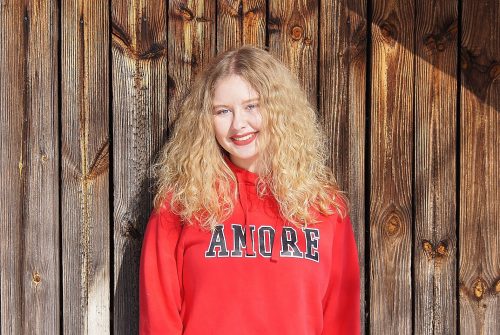
Klassikka News reporter Jolanda Varis.
